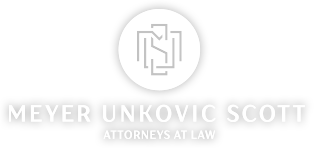Do not delay in preparing your H-1B visa applications as the demand is great, and it is likely that the U.S. Citizenship and Immigration Services (USCIS) will receive more applications than there are available H-1B visas. There is an annual cap of 65,000 for foreign national employees holding the equivalent of a U.S. Bachelor’s degree and an additional 20,000 visas available for employees with a U.S. Master’s degree or higher. Because of the increased demand, in the past several years the USCIS has conducted a lottery to select an appropriate number of applications for consideration of H-1B eligibility.
To be selected in the lottery, employers must file on or about April 1, 2019 for employment beginning on October 1, 2019, the first day of the government’s fiscal year. Employers can file H-1B applications no earlier than six months in advance of the anticipated start date. The USCIS will announce in advance how many days following April 1 it will accept applications. Last year, the USCIS received in excess of 190,000 applications during the filing period. Companies filing for students on Optional Practical Training (OPT) with work authorization expiring after April 1 secure an automatic extension of the student’s work authorization until there is a decision on whether the case is selected, and, if selected, the extension continues until October 1, 2019.
In January 2019, the Department of Homeland Security (DHS) issued amendments to the H-1B regulations that will require petitioners who are filing H-1B petitions subject to the cap to first electronically register with the USCIS during a designated registration period. If the petitioner is selected in this registration process, then the petitioner would file the H-1B petition at a later date. This registration period is suspended this year until the USCIS completes testing on the new registration system, but is expected to be implemented for next year’s H-1B filings. The amendments also change the way the lottery system is conducted to increase the chances of selecting foreign workers with U.S. Master’s degrees.
Employers need to be aware that every H-1B application requires a Labor Condition Application (LCA) certified by the U.S. Department of Labor (DOL). The DOL takes approximately one week to certify an LCA. If an employer has not previously filed an LCA with the DOL, it may take additional time for the DOL to verify the employer’s Federal Employer Identification Number. Companies need to consider the lead time necessary to prepare an H-1B application.
It is important for companies to carefully prepare their applications as the USCIS has increased its scrutiny and regularly requests additional evidence from employers. Employers can work with counsel to develop detailed explanations as to why the employee qualifies for this visa.
For more information on these proposed changes, or to discuss other immigration matters, please contact Joel Pfeffer, Elaina Smiley, or Gary Sanderson. Links to their contact information are included below.
This material is for informational purposes only. It is not and should not be solely relied on as legal advice in dealing with any specific situation.

